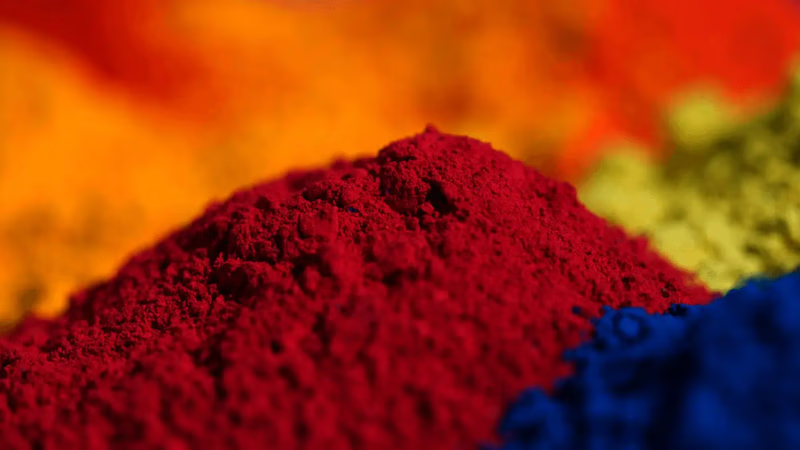
Food and pharmaceutical chemicals ensure safety and quality.
Food and pharmaceutical chemicals are specialized categories of chemicals that are specifically used in the food and pharmaceutical industries. These chemicals play crucial roles in ensuring the safety, quality, and efficacy of food products and pharmaceutical drugs. Food and pharmaceutical chemicals are subject to stringent regulations to ensure their safety, quality, and compliance with standards. Regulatory bodies, such as the U.S. Food and Drug Administration (FDA) and the European Medicines Agency (EMA), establish guidelines for the use, labeling, and safety evaluation of these chemicals to protect consumer health.
Food additives are substances added to food products to enhance their flavor, appearance, texture, shelf life, or nutritional value. Examples include preservatives, antioxidants, emulsifiers, stabilizers, sweeteners, coloring agents, and flavor enhancers. Food flavorings are chemicals used to impart specific flavors and aromas to food products. They can be natural extracts or synthetic compounds and are used in various forms, such as essential oils, extracts, or artificial flavor compounds.
APIs are the primary chemical compounds responsible for the therapeutic effects of pharmaceutical drugs. These chemicals undergo rigorous testing and regulatory approval before being used in drug formulations. Excipients are inactive substances used as carriers or fillers in pharmaceutical formulations to facilitate drug delivery. They aid in the stability, solubility, and bioavailability of drugs. Examples include binders, diluents, lubricants, and disintegrants. Solvents are used in the manufacturing process of pharmaceutical drugs for dissolving or suspending the active ingredients. Common solvents include water, ethanol, glycerin, and various organic solvents.
These materials are the basic building blocks of everything in the world. Food and pharmaceutical chemicals are a very important group of these compounds that are related to the health of people in the community. Today, the use of chemical additives can increase the shelf life of food, and a variety of chemical colors and flavors can make food more attractive and delicious. Also, these substances can be used to preserve and make food safer and eliminate many harmful microorganisms in foods or prevent them from growing.
These are chemical compounds produced during the synthesis of APIs. Intermediates undergo further processing to form the final active pharmaceutical ingredients. Coatings are applied to pharmaceutical tablets or capsules to improve their appearance, protect the drug from degradation, control release, or enhance patient compliance. Coating materials may include polymers, waxes, pigments, and plasticizers. Currently, thanks to the list of these substances, the pharmaceutical industry is also very developed, and with the help of these compounds, a variety of drugs can be produced for various diseases. Most drugs are precursors to chemicals. In addition to medical drugs, these compounds are also used to produce drugs such as heroin and cocaine.
Food preservatives are chemicals that help inhibit the growth of microorganisms, slow down spoilage, and extend the shelf life of food products. Common examples include salt, sugar, vinegar, sorbic acid, benzoic acid, and various antimicrobial agents. These chemicals assist in food processing operations to improve efficiency, quality, or safety. Examples include enzymes, pH adjusters, anti-caking agents, and processing aids used in baking, brewing, dairy, and meat processing. Chemicals are used in food packaging materials to provide protective barriers, enhance shelf life, and prevent contamination. These include materials such as plastics, coatings, adhesives, and antimicrobial agents.
-
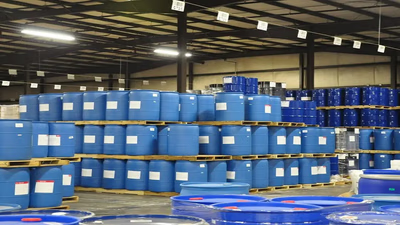
The Middle East is a pivotal player in the global chemical trade, driven by its extensive petrochemical production capabilities. Major exporters like Saudi Arabia, Qatar, and the UAE supply a variety of chemicals, including ammonia, sulfuric acid, and chlorine, to markets in Asia-Pacific, Europe, North America, and Africa. The region"s strategic location enhances logistical advantages, facilitating access to significant shipping routes. There is a growing focus on developing downstream industries, such as plastic conversion and polymer processing, aimed at adding value to the chemical supply chain. International investments and joint ventures have led to the establishment of large-scale chemical complexes, promoting local economic growth. Compliance with stringent regulations regarding product quality and safety is crucial for successful chemical trade. Despite a decline in market value due to regulatory restrictions, the chemical market is projected to recover, with an expected growth of 1.8% by 2024. The Middle East imports a variety of chemicals, including specialty chemicals and fertilizers, primarily from countries like China, India, Germany, and Turkey.
Bilateral and regional trade agreements, particularly among Gulf Cooperation Council (GCC) countries, are enhancing trade facilitation. The chemical trade landscape in the Middle East is characterized by a blend of local production and international sourcing, making it a dynamic and profitable sector."
-
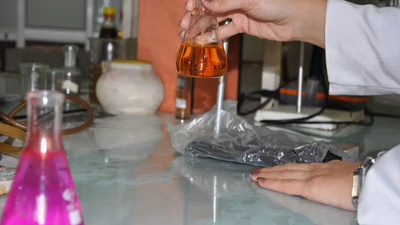
Laboratory chemicals and nanomaterials are essential in scientific research, providing the necessary substances for experimentation and analysis. Laboratory chemicals, including acids, bases, solvents, reagents, and organic and inorganic compounds, are crucial for various laboratory procedures. They are chosen for their purity and compatibility with specific applications. Laboratory nanomaterials, which are synthesized at the nanoscale, exhibit unique properties that enhance their utility across multiple scientific disciplines. These materials are increasingly important in sectors like electronics, medicine, and environmental science. The market for nanomaterials is expected to grow significantly, driven by innovations in nanochemistry and applications in diverse fields. Key applications include the development of nanoparticles, nanocomposites, quantum dots, and nanosensors, each serving specialized functions in technology and healthcare. The synthesis of these materials involves advanced techniques, and their handling requires stringent safety protocols due to potential health and environmental risks. As the demand for laboratory chemicals and nanomaterials rises, understanding their properties and applications becomes critical for industries and research institutions in the Middle East and beyond.
-
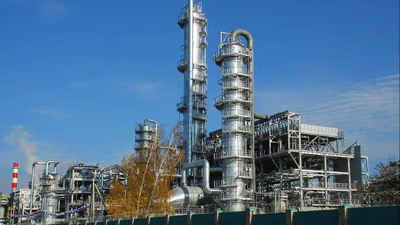
Chemicals are categorized based on various characteristics, including molecular composition, functional properties, supply chain position, and physical states. They can be classified into organic and inorganic chemicals, with organic chemicals containing carbon atoms and being associated with living organisms. Inorganic chemicals, on the other hand, include metals, minerals, acids, and bases. Additionally, chemicals are grouped by their roles in industries, such as solvents, surfactants, and catalysts. The supply chain classification includes raw materials, intermediates, and finished products. Specialty chemicals, which are high-value and customized, play crucial roles in sectors like electronics and healthcare. Agricultural chemicals, including fertilizers and pesticides, enhance crop yield and protect against pests. Pharmaceutical chemicals are essential for drug production, while basic chemicals serve as foundational materials in various industries.
Understanding these classifications aids in grasping market dynamics and the specialized applications of chemicals, which are also assessed for potential hazards to human health and the environment. This comprehensive categorization is vital for businesses engaged in import-export activities, particularly in the Middle East and West Asia, where trade platforms facilitate B2B interactions among verified exporters and importers.
-
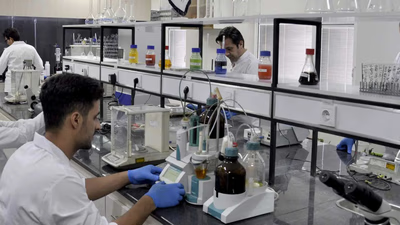
Synthetic chemical compounds have significantly impacted various industries, from pharmaceuticals to agriculture. Their development has enabled the creation of essential products such as antibiotics, polymers, and agrochemicals. In the pharmaceutical sector, synthetic compounds are crucial for producing drugs that treat diseases, including antibiotics and pain relievers. In agriculture, these compounds enhance crop yields and protect plants through pesticides and fertilizers. The textile industry benefits from synthetic dyes and pigments, which provide color to various materials. Surfactants, another category of synthetic compounds, are vital in detergents and personal care products, improving their effectiveness. Additionally, industrial chemicals, including sulfuric acid and solvents, play a key role in manufacturing processes. The versatility of synthetic compounds extends to food preservation, allowing for the creation of flavorful and long-lasting food products. Overall, the synthesis of chemical compounds has revolutionized multiple sectors, offering innovative solutions and enhancing product quality.
-

Food and pharmaceutical chemicals are essential for ensuring safety, quality, and efficacy in their respective industries. These chemicals are regulated by bodies like the FDA and EMA to protect consumer health. In food production, additives such as preservatives, antioxidants, and flavor enhancers play a vital role in enhancing flavor, texture, and shelf life. Similarly, in pharmaceuticals, active pharmaceutical ingredients (APIs) are crucial for therapeutic effects, while excipients aid in drug delivery and stability. The use of solvents is also significant in drug manufacturing. Food preservatives inhibit microbial growth and extend shelf life, while processing aids improve efficiency and safety. Additionally, packaging materials made from various chemicals protect food products from contamination and degradation. The development of these chemicals has advanced the pharmaceutical industry, enabling the production of a wide range of drugs. Overall, food and pharmaceutical chemicals are integral to public health, enhancing both food safety and drug efficacy.
-
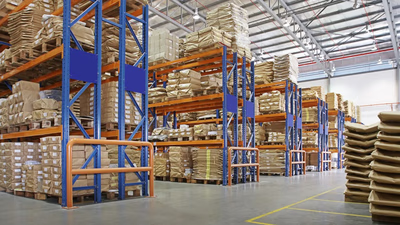
Natural chemical compounds exist in solid, liquid, and gaseous forms, comprising individual elements or complex molecules. Gases like oxygen and nitrogen are prevalent in the atmosphere, while water, a crucial liquid, exhibits unique properties affecting Earth"s geology and biology. Alkaloids, terpenes, flavonoids, and phenolic compounds represent diverse organic chemicals found in plants, each with significant biological activities and applications in pharmaceuticals, essential oils, and food products. Essential oils, proteins, and enzymes play vital roles in various industries, including food processing and medicine. Antibiotics, produced by microorganisms, are essential for treating infections. Minerals, essential for biological processes, are found in rocks and soil. Understanding these natural chemicals is crucial for industries such as agriculture, pharmaceuticals, and environmental science, highlighting their importance in trade and supply chain solutions across the Middle East and West Asia."
-
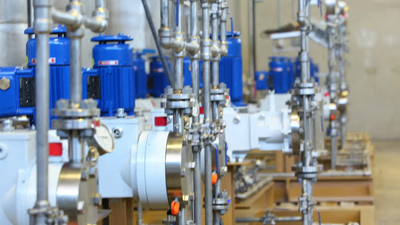
The chemical industry is a critical sector that encompasses the production, manufacturing, and distribution of a wide range of chemicals and chemical products. It supports various industries, including agriculture, healthcare, construction, and automotive, by providing essential materials and intermediates. Key components include industrial acids like sulfuric and hydrochloric acids, alkalies such as sodium hydroxide, and solvents like acetone and ethanol. The industry also produces surfactants, polymers, and specialty chemicals, which are vital for numerous applications. Moreover, the sector is focused on innovation and sustainability, investing in research and development to create eco-friendly alternatives and improve manufacturing processes. The production stages involve raw material sourcing, chemical synthesis, quality control, and distribution, ensuring compliance with safety and regulatory standards. Overall, the chemical industry plays a foundational role in modern economies, driving advancements and supporting a diverse range of applications across multiple sectors.
-
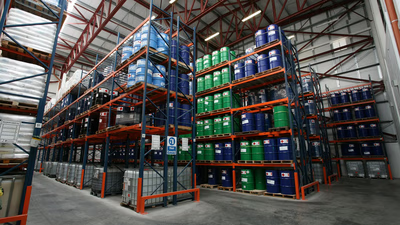
Chemicals are substances with distinct molecular compositions, existing in solid, liquid, gas, or plasma states. They are crucial in various industries, including manufacturing, agriculture, healthcare, and construction. Chemicals serve as raw materials for products like pharmaceuticals, plastics, and textiles, and are essential for agricultural practices as fertilizers and pesticides. The demand for chemicals is driven by economic growth, population increases, and technological advancements. Global trade in chemicals is influenced by international agreements, market competition, and regulatory compliance. Sustainable practices are gaining traction, focusing on reducing environmental impacts through the development of green chemicals. The chemicals market is also affected by price fluctuations and innovations in technology. Understanding the diverse categories of chemicals, such as organic and inorganic, is vital for industries reliant on these substances. While many chemicals are beneficial, some can be hazardous if not handled properly, emphasizing the need for adherence to safety guidelines.








